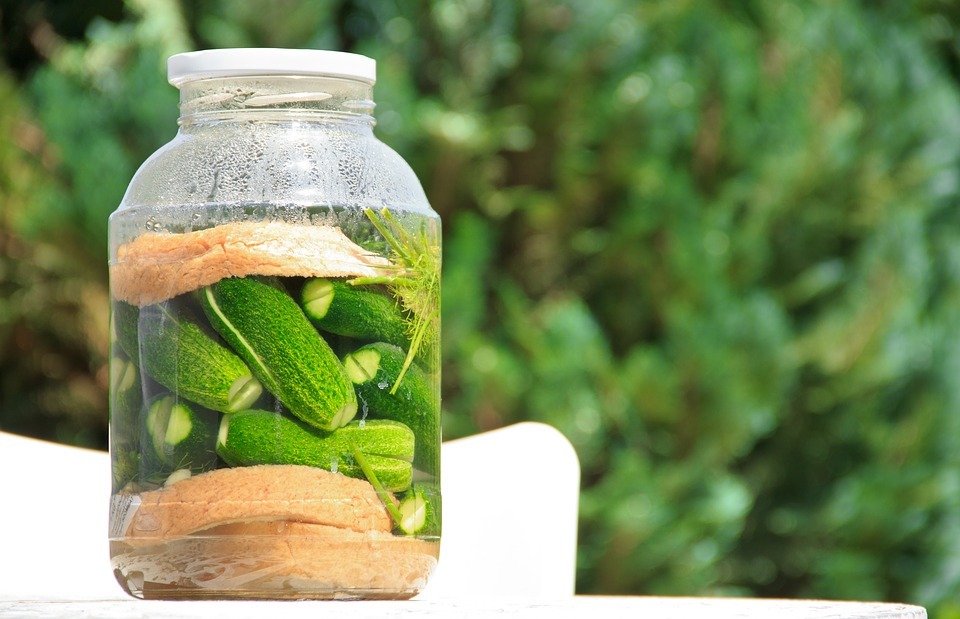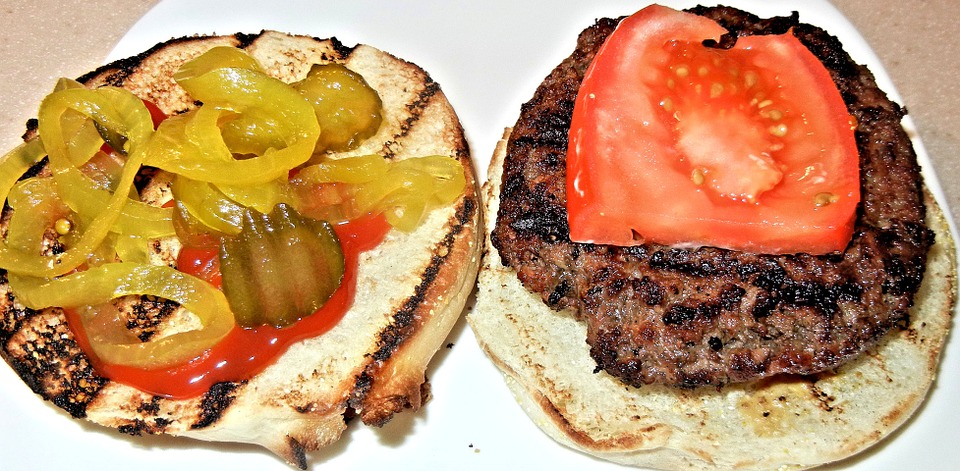This article explores the question of whether dogs can safely eat pickles, examining the potential risks and benefits. We'll delve into the nutritional content of pickles, the potential dangers of consuming them, and offer advice on how to introduce pickles to your dog's diet, if at all.
Part 1: Pickles and Canine Nutrition

1.1. The Composition of Pickles: More Than Just Cucumbers
Pickles are created through a process of fermentation, where cucumbers are submerged in a brine solution, usually containing vinegar, salt, and sometimes sugar. This process alters the flavour and texture of the cucumber, creating the tangy, crunchy pickle we know and love. However, it's these added ingredients that pose potential risks to our canine companions.
1.2. The Sodium Factor: A Significant Concern
Pickles are notoriously high in sodium, a mineral that can be harmful to dogs in excess. A typical dill pickle can contain over 1,000mg of sodium, exceeding the daily recommended intake for many dog breeds.
1.3. Vinegar: The Acidic Element
The vinegar used in pickling adds acidity to the pickle, which can irritate a dog's sensitive stomach lining. The strong acidic nature of vinegar can lead to discomfort, bloating, and even vomiting.
1.4. The Sugar Trap: Added Sweetness, Added Problems
While some pickles are made without added sugar, many varieties contain significant amounts, contributing to a dog's overall calorie intake. This can lead to weight gain, especially if given frequently.
1.5. The Garlic and Onion Threat: A Toxic Combination
Some pickle recipes include garlic and onions, which are toxic to dogs. These ingredients contain compounds that can damage red blood cells and lead to anaemia, and even cause severe health problems like kidney failure.
1.6. The Minimal Nutritional Value: A Treat with Little Benefit
While pickles contain small amounts of vitamins and minerals, these can be easily obtained from a balanced dog food diet. The potential risks associated with pickles far outweigh their minimal nutritional benefit for dogs.
Part 2: Risks Associated with Pickles

2.1. Gastrointestinal Issues: The Common Side Effects
The high sodium content in pickles can cause diarrhoea, especially if your dog consumes a large quantity. The vinegar's acidity can irritate the stomach and trigger vomiting. In some cases, your dog may experience general gastrointestinal discomfort, including bloating and abdominal pain.
2.2. Sodium Toxicity: A Serious Threat
Excess sodium intake can lead to sodium toxicity, a condition that can be life-threatening. Signs of sodium toxicity include:
- Increased thirst: Your dog may drink excessively to try to flush out the excess sodium.
- Vomiting: Sodium toxicity can cause vomiting, often accompanied by diarrhoea.
- Diarrhoea: Excess sodium can lead to diarrhoea, often watery and frequent.
- Lethargy: Your dog may appear tired and less energetic.
- Muscle tremors: In severe cases, sodium toxicity can cause muscle tremors or seizures.
- Panting: Your dog may pant excessively due to dehydration.
- Loss of coordination: Sodium toxicity can affect the nervous system, leading to clumsiness and difficulty walking.
2.3. Garlic and Onion Toxicity: A Danger to Avoid
If the pickles contain garlic or onion, these ingredients can be highly toxic to dogs. Symptoms of garlic and onion toxicity can include:
- Gastrointestinal upset: Vomiting, diarrhoea, and abdominal pain are common signs.
- Weakness and lethargy: Your dog may appear tired and weak.
- Pale gums: Garlic and onion toxicity can lead to anaemia, causing pale gums.
- Rapid breathing: Toxicity can affect the respiratory system, causing rapid breathing.
- Heart problems: In severe cases, garlic and onion toxicity can cause heart problems.
- Increased urination: Garlic and onion toxicity can strain the kidneys, leading to increased urination.
- Red urine: In severe cases, the urine may appear red due to the breakdown of red blood cells.
Part 3: When Can Dogs Eat Pickles?

While it's generally not recommended to give dogs pickles, there might be rare exceptions:
3.1. Small Amounts as a Treat: A Risky Choice
If you choose to offer your dog a tiny piece of pickle, ensure it's:
- Plain: Choose dill pickles without added sugar, garlic, or onion.
- Well-rinsed: Rinse the pickle thoroughly to remove excess salt and vinegar.
- Small portion: Offer just a small piece as a rare treat, not as a regular part of their diet.
- Monitor closely: Watch your dog for any signs of gastrointestinal upset after consuming even a small amount.
3.2. Consult your Vet: The Ultimate Guide
If you have any concerns about your dog eating pickles, always consult your vet. They can advise you on the best course of action based on your dog's individual health and dietary needs.
Part 4: Alternatives to Pickles
If you're looking for healthy treats for your dog, consider these options:
- Dog-friendly fruits and vegetables: Apples, bananas, carrots, and blueberries are safe and healthy options.
- Commercial dog treats: Choose treats specifically formulated for dogs, with ingredients tailored to their nutritional needs.
- Homemade dog treats: You can make your own dog treats using dog-safe ingredients, like peanut butter, oats, and bananas.
Part 5: Signs of Pickle Toxicity
If your dog has consumed a large quantity of pickles, watch for these signs of toxicity:
- Excessive thirst
- Vomiting
- Diarrhoea
- Lethargy
- Muscle tremors
- Loss of appetite
- Panting
- Loss of coordination
- Pale gums
- Rapid breathing
- Increased urination
- Red urine
5.1. Seeking Veterinary Attention: A Crucial Step
If you notice any of these symptoms, contact your veterinarian immediately. Prompt veterinary care is crucial to prevent serious complications.
Part 6: FAQs
6.1. Can dogs eat dill pickles?
Dill pickles are generally considered safer than sweet or spicy pickles, but they are still high in sodium and vinegar, which can cause gastrointestinal upset. It's best to avoid giving your dog dill pickles altogether.
6.2. Can dogs eat pickle juice?
Pickle juice is even more concentrated in sodium and vinegar than pickles themselves. It's extremely unsafe for dogs and should never be given to them.
6.3. What about pickle relish?
Pickle relish often contains additional ingredients like sugar, garlic, and onion, making it highly toxic to dogs. Avoid giving your dog any type of pickle relish.
6.4. My dog ate a pickle, what should I do?
If your dog has eaten a small amount of plain, unseasoned pickle, they may not experience any adverse effects. Monitor your dog closely for any signs of gastrointestinal upset. If you notice any symptoms, contact your vet immediately.
6.5. Can I give my dog a tiny piece of pickle as a treat?
It is not recommended to give your dog any pickles as a treat. There are many safer and healthier alternatives available for your furry friend.
6.6. What are the best treats for my dog?
Commercial dog treats and homemade treats using dog-safe ingredients are healthier options than pickles. Consult with your vet to determine the best treat choices for your dog's individual needs.
Everyone is watching
-

Can Dogs Eat Bananas? A Guide to Safe Treats
DOGS & PUPPIESThis comprehensive guide will delve into the world of canine nutrition, focusing on the popular question: can ...
-

Can Dogs Eat Oranges? (Is It Safe or Toxic?)
DOGS & PUPPIESThis article delves into the question of whether dogs can safely consume oranges. We'll explore the nutrition...
-

Can Dogs Eat Grapes? The Shocking Truth About This Fruit
DOGS & PUPPIESThis article delves into the controversial topic of grapes and dogs, exploring the potential dangers associate...
-

Why Do Dogs Eat Poop? Understanding Coprophagia in Dogs
DOGS & PUPPIESThis article delves into the perplexing phenomenon of coprophagia, the act of eating faeces, in dogs. We explo...
-

Can Dogs Eat Shrimp? A Guide to Safety and Risks
DOGS & PUPPIESThis comprehensive guide dives into the world of shrimp and dogs, exploring the potential benefits and risks a...
